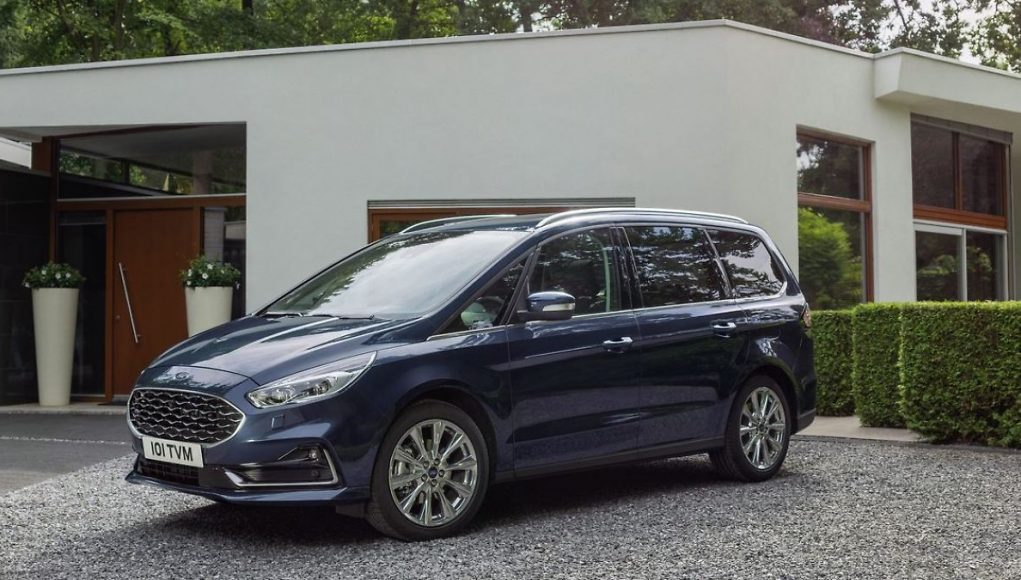Used car check
Ford Galaxy – well-driven, spacious touring car
This audio version was artificially generated. More info | Send feedback
The Ford Galaxy is a glider with lots of space. The usually high mileage does not leave him unscathed, but the TÜV also finds positive things about the HU. What should you pay attention to when buying a second-hand large van?
Plenty of interior space is a hallmark of the Ford Galaxy III. The everyday use is high – especially since up to seven people can travel with you. Thanks to its comfortable chassis or the optionally installed massage seats, it also makes a luxurious travel car. Its mileage is often high, which means that there are more complaints during the general vehicle inspection (HU) – but that's not all.
Model history
The third generation, technically related to the Ford Mondeo, debuted in stores in 2015. The 2019 facelift brought retouches to the front, so the radiator grille was larger. In 2023, Ford discontinued the Galaxy.
The original model from 1995 and the second edition (2006 to 2014) were joint projects with VW and Seat, which had identical models in their range: the Sharan and the Alhambra.
Body and variants
The Galaxy is one of the large-capacity vans. Five seats are the rule, but it becomes a seven-seater when the optional third row of seats is installed. A variant was created for combined operation with gasoline and ethanol (Flexifuel). A hybrid version came in 2021, replacing the other engines.
Dimensions (according to ADAC)
- 4.85 meters x 1.92 meters x 1.75 meters (L x W x H)
- Trunk volume: 689 to 2339 liters (seven-seater: from 200 liters)
Strengthen
With the HU, the drive shafts do not cause any problems, the same applies to the axle suspensions. The steering system and steering joints have a clean slate, at least on the first and second checks.
Brake hoses almost never cause complaints, the braking function rarely causes, according to the “Auto Bild TÜV Report 2024”.
Weaken
The lighting delivers average complaint rates. The brake discs perform worse in the HU, as they are worn relatively often and even at the first check. Oil loss runs like a trail through all vintages. The van sometimes passes the emissions test (AU), but sometimes it doesn't.
Breakdown behavior
In the ADAC breakdown statistics, the models first registered in 2016 and 2017 deliver very good values. With correspondingly poor reliability, those from 2018 end up in bad places, due to ailing starter batteries, which the car club cites as the main cause of breakdowns.
New vehicles no longer appear in the club's data collection due to the low number of registrations.
engines
- Petrol engine (four-cylinder, front-wheel drive): 118 kW/160 hp to 177 kW/240 hp
- Diesel (four-cylinder, front- and all-wheel drive): 88 kW/120 hp to 177 kW/240 hp
- Flexifuel (petrol and ethanol operation, four-cylinder): 107 kW/145 hp
- Hybrid (petrol plus electric motor, front-wheel drive): system output 140 kW/190 hp
Dealer sales value according to the Deutsche Automobil Treuhand (DAT) with statistically expected kilometers – three price examples
- Galaxy 2.5 Duratec FHEV Hybrid Edition (6/2021); System output: 140 kW/190 HP (four-cylinder + electric motor); 49,000 kilometers; 24,967 euros.
- Galaxy 2.0 EcoBlue Business AWD start/stop (6/2018); 140 kW/190 HP (four-cylinder); 126,000 kilometers; 19,722 euros.
- Galaxy 1.5 EcoBoost Business Start/Stop (6/2017); 118 kW/160 hp (four-cylinder); 121,000 kilometers; 15,997 euros
































